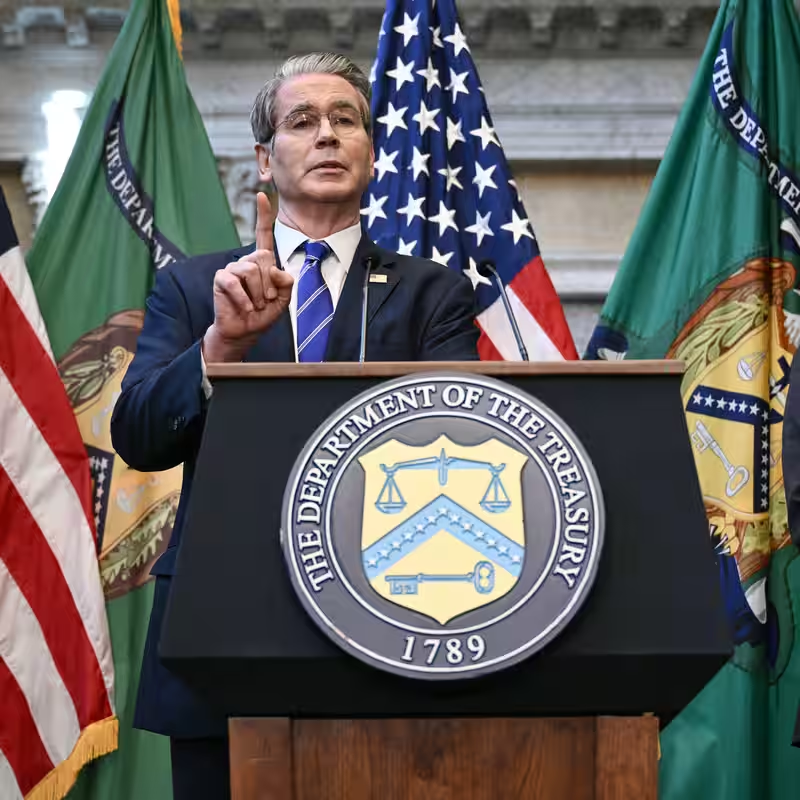Table of Contents
- A Dramatic Shift in U.S. Industrial Policy
- Why Rare Earths Are the New Geopolitical Flashpoint
- Which Companies Are Now Under U.S. Government Influence?
- China’s Licensing Move and U.S. Retaliation
- What’s Next for U.S.-China Tech and Trade Wars?
- Sources
U.S. Adopts Assertive Industrial Policy to Counter China
In a striking departure from decades of free-market orthodoxy, the Trump administration is taking direct stakes in American companies to counter China’s growing economic leverage—particularly in rare earth minerals and advanced technology. Treasury Secretary Scott Bessent announced the strategy on Wednesday, calling it a necessary response to what he described as “economic coercion” from Beijing.
“When you are facing a nonmarket economy like China, then you have to exercise industrial policies,” Bessent declared at a CNBC forum on investing in America. The move marks a dramatic pivot for a Republican administration that once criticized such interventions as “central planning.”
Rare Earths: The Hidden Backbone of Modern Tech
Rare earth elements—17 chemically similar metals—are essential for everything from fighter jets and electric vehicles to smartphones and AI chips. China currently controls over 80% of global rare earth processing, giving it immense leverage over global supply chains.
Last week, Beijing escalated tensions by announcing a new licensing system requiring foreign companies to seek approval from Chinese authorities before trading in any product containing trace amounts of Chinese rare earths—even if manufactured outside China. The rule would also ban shipments to U.S. and European defense firms.
Key Rare Earth Elements and Their Uses
| Element | Primary Use | China’s Global Processing Share |
|---|---|---|
| Neodymium | High-strength magnets (EVs, wind turbines) | ~85% |
| Dysprosium | Heat-resistant magnets (military, aerospace) | ~90% |
| Praseodymium | Aircraft engines, fiber optics | ~80% |
| Terbium | Green phosphors (LEDs, displays) | ~75% |
Companies Now Under U.S. Government Influence
The Treasury Department has already taken equity stakes or secured control mechanisms in several strategic firms, including:
- U.S. Steel – to bolster domestic metals production
- Intel – to secure semiconductor supply chains
- MP Materials – the only U.S.-based rare earth mining and processing company
- Trilogy Metals – developing critical mineral projects in Alaska
Beyond ownership, the administration is demanding that companies like Nvidia and Advanced Micro Devices (AMD) share a portion of their China-derived chip sales revenue with the U.S. government.
China’s Licensing Gambit and U.S. Retaliation
China’s new export control framework has been labeled “an exercise in economic coercion on every country in the world” by U.S. Trade Representative Jamieson Greer. In response, President Trump has threatened to impose 100% tariffs on all Chinese goods starting November 1—though he later softened his tone on social media, writing, “Don’t worry about China, it will all be fine!”
Despite the mixed signals, officials insist the tariffs are real. The U.S. has already drafted the legal paperwork and plans to move forward if China’s licensing system takes effect later this year.
Meanwhile, the U.S. has also begun charging fees on Chinese-built ships docking at American ports—a policy that prompted Beijing to sanction five subsidiaries of South Korea’s Hanwha Group, which is aiding U.S. shipbuilding efforts.
What’s Next for U.S.-China Tech and Trade Wars?
The Treasury Secretary outlined a broader strategy to reduce dependence on China, including:
- Creating a strategic mineral reserve akin to the oil reserve
- Using “price floors” and “forward buying” to stabilize critical supply chains
- Forcing defense contractors to prioritize R&D over stock buybacks
- Building alliances with allies like Canada, Australia, and the EU to diversify rare earth sourcing
Bessent emphasized that while the U.S. isn’t becoming a “state economy,” it must defend its technological sovereignty. “We are not going to let a group of bureaucrats in Beijing manage the global supply chains,” he said.
With Trump and Xi Jinping still expected to meet in South Korea later this month, the world watches nervously as two superpowers redefine the rules of economic warfare.




